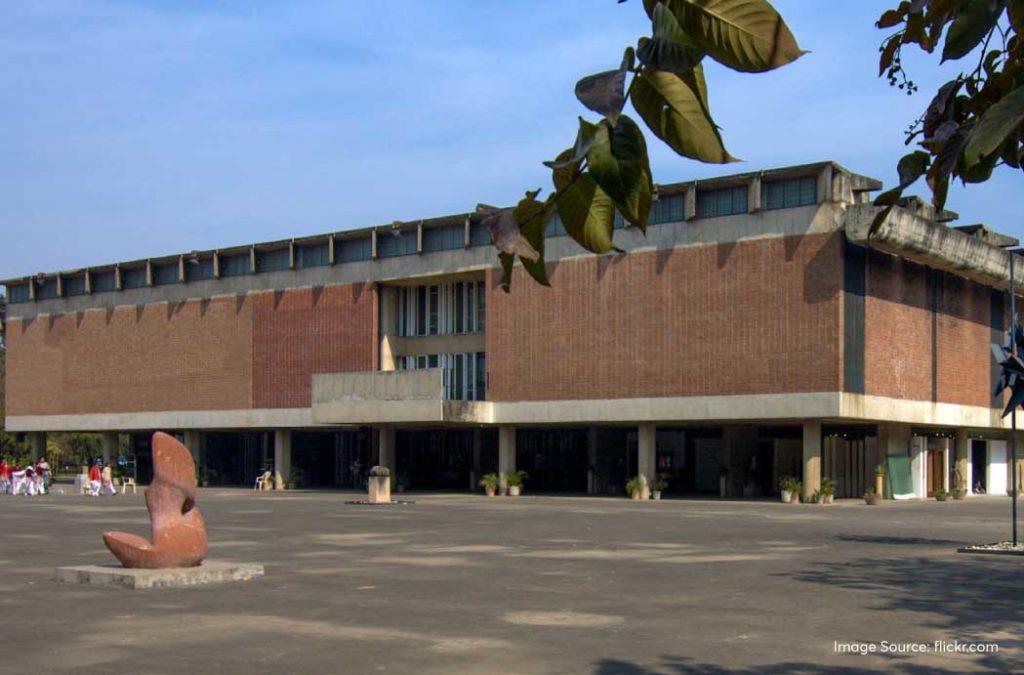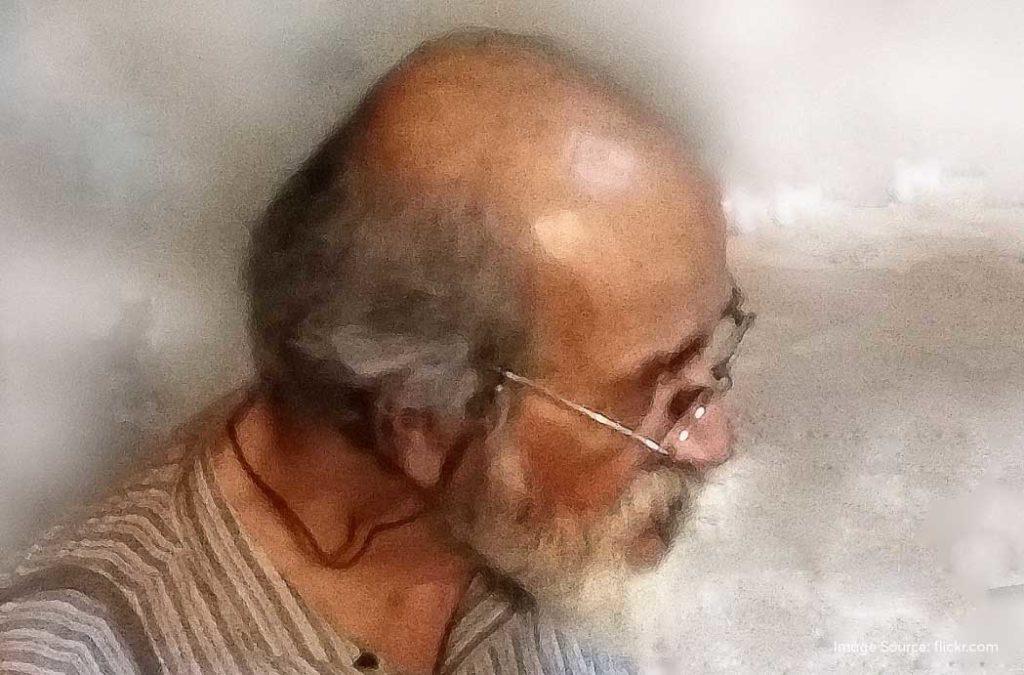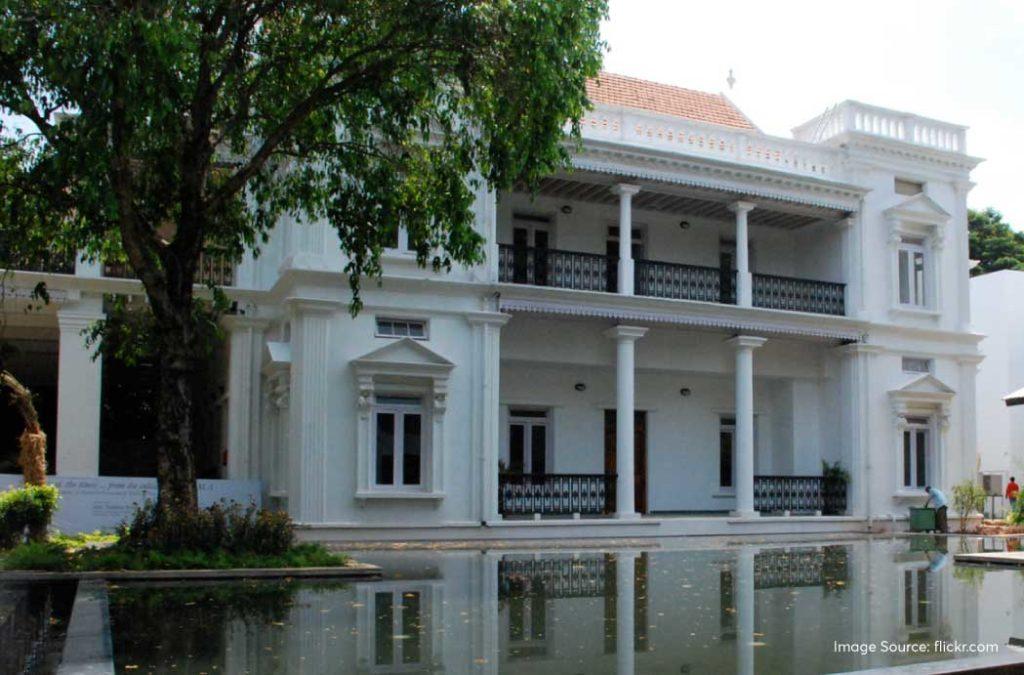“The beauty lies in the eyes of the beholder.” What a popular saying that justifies different forms of art across the globe! You sure love the arches of certain structures, the construction of high-end buildings or the simplest of street art on the walls. Art in any form has the power to transform emotions in different mediums. That’s exactly why art galleries in India await your presence!
The essence of each piece of art displayed in art galleries has narratives to tell. From contemporary paintings to abstract strokes of paints, every art gallery conveys a meaning of life to you. Isn’t it amazing to witness forms of art that can be read, seen, felt and appreciated? With ourhotels, you can now set on a journey to observe masterpieces of grace and beauty. Here is your guide to exploring stunning art galleries in India.
The 10 Best Art Galleries in India are –
1. National Gallery of Modern Art, New Delhi
When in Delhi, you have to visit the popular National Gallery of Modern Art. It offers a spectacular combination of contemporary and traditional art forms. Established in 1954, you can observe the surreal arts of the mid-18th century. The collection is certain to take you back to the age-old times.

Spread across eight acres of land, you can check for different exhibitions here. Apart from this, it is one of the best art galleries in India with prestigious collections. While some exhibitions are dedicated to evolution, others can be about the connection between today and the past. So, make sure to book one of the best hotels in Delhi for a peaceful holiday.
Timing: 11:00 AM to 6:30 PM
Location: Jaipur House, Shershah Rd, near India Gate, Delhi High Court, India Gate, New Delhi, Delhi 110003
2. Aakriti Art Gallery, Kolkata
Aakriti Art Gallery is a beautiful location in Kolkata to enliven your soul. The power of expression through art is commendable here. It is one of the finest art galleries in India to explore a variety of sculptures, paintings and exquisite artworks. The art gallery is best known for supporting amateurs as well as renowned artists.

If you want to explore the art of sculpting, this gallery has some of the best sculptures ranging from the modern era to the traditionally popular ones. Various artisans have contributed their best to offer an enriching experience. You can also browse through international paintings and printmaking.
Timing: 11:00 AM to 7:00 PM
Location: 12/3a, Orbit Enclave, Picasso Bithi, Mullick Bazar, Park Street area, Kolkata, West Bengal 700017
EVER THOUGHT OF BEACHES NEAR KOLKATA? IF NOT THEN DON’T FORGET TO CHECK THIS
3. Jehangir Art Gallery, Mumbai
Jehangir Art Gallery is one of the best structures in Mumbai for an artistic time! Right from photographers, and sculptures to painters, this gallery is open for every individual who loves to express through art. It is best to look for affordable hotels in Mumbai for a serene getaway in the city.

Jehangir Art Gallery is best known for its stunning interiors and well-lit galleries. Additionally, you can be a part of various workshops and exhibitions hosted by famous artists. The art gallery also invites weavers, printmakers and visual artists to display their work.
Timing: 11:00 AM to 7:00 PM
Location: 161B, Mahatma Gandhi Road, Kala Ghoda, Fort, Mumbai, Maharashtra 400001
4. The Government Museum and Art Gallery, Chandigarh
Just as the name suggests, the Government Museum and Art Gallery is a combination of various artworks and information. You can browse through the spacious structure and explore a lot about history. It offers a great opportunity to observe structures and paintings of the medieval period. Take a look at some of the best hotels in Chandigarh to enjoy your stay.

The Government Museum and Art Gallery also consists of miniature paintings. With a fusion of sculptures and ancient paintings, you get to explore a lot about Indian history. Many parts of the museum shed light on religious beliefs and Stone Age life too. It is indeed interesting to uncover the art forms in a well-maintained space.
Timing: 10:00 AM to 4:30 PM
Location: Sector, 10C, Chandigarh, 160011
NAVIGATING THE MALLS IN CHANDIGARH: WHERE TO GO FOR SHOPPING EXPERIENCE
5. Academy of Fine Arts, Kolkata
You can completely miss the essence of Kolkata if you do not visit the famous Academy of Fine Arts. It is one of the best art galleries in India where art is spread in every corner. Whether it is a teenager, an adult or a qualified artist, you can find artwork of anyone and everyone here. Look for affordable hotels in Kolkata and have a mesmerizing time in the city!

The ground floor has six different galleries to browse through an exclusive collection of paintings. This place also has an auditorium where you can watch cultural shows related to art and contributions by various artists. Moreover, it gives you an opportunity to recognize your hidden talents simply by soaking in a peaceful time here.
Timing: 12:00 PM to 8:00 PM
Location: 2, Cathedral Rd, Maidan, Kolkata, West Bengal 700020
6. National Gallery of Modern Art, Bangalore
Nestled in the heart of Bangalore, welcome to one of the best art galleries in India! The National Gallery of Modern Art (NGMA) in Bangalore is the finest example of modern art combined with traditional elements. As you walk through the lush green surroundings, you can feel the tranquillity here. The art gallery takes you on the journey of the past with famous artisans during pre and post-independence periods.

Spread across 3.5 acres of spacious land, you can find many paintings, sculptures and miniature art. If you are interested in photography, this art gallery showcases the evolution of photography. You can check out the spacious library and satisfy your taste buds at the cafeteria. It is a super-active art gallery with ongoing exhibitions, talks, seminars, competitions and workshops. So, check out hotels in Bangalore for a comfortable stay.
Timing: 11:00 AM to 6:00 PM on Weekdays | 11:00 AM to 7:30 PM on Weekends
Location: 49, GF, Manikyavelu Mansion, Palace Rd, Vasanth Nagar, Bengaluru, Karnataka 560052
FROM ART TO HUMAN INTERACTIONS: 10 MOST EXCITING EVENTS IN BANGALORE TO ATTEND
7. Darpan Art Gallery, Pune
One of the popular art galleries in Pune is definitely the Darpan Art Gallery. If you are an artist willing to showcase your work, it is a great space. With a spacious campus area, the gallery attracts tourists as well as locals. It is always good to book one of the budget-friendly hotels in Pune for a great getaway. The place also has a cool cafeteria and an auditorium.

Darpan Art Gallery is famous for welcoming amateurs to display their artwork. You can easily catch glimpses of water paintings, canvas art and different types of paintings. It is also an amazing place to learn as the art gallery conducts various painting workshops. The exhibitions generally change every weekend so do check out once!
Timing: 11:00 AM to 7:00 PM
Location: Kalachhaya Campus, Patrakar Nagar Rd, Gokhale Nagar, Pune, Maharashtra 411016
8. ICA Gallery, Jaipur
Have you ever wondered about the diverse forms of art in Rajasthan? One of the most beautiful art galleries in India is in Jaipur. The ICA Gallery is a wholesome space to explore a plethora of paintings. Right from contemporary, and traditional to a fusion of modern-day art, everything can be found here!

Being located in Jaipur, you can spot authentic Rajasthani art with the inclusion of their culture and traditions in the paintings. Additionally, the gallery houses many abstract art paintings. Along with this, it has a variety of sculptures depicting a unique art form. So, get ready to experience a journey of talent and pride as you arrive here. Make sure to book one of the best hotels in Jaipur for a serene stay.
Timing: 10:00 AM to 8:00 PM
Location: 73/C, Shankar Nagar Ext., Kagdiwara, opp. Ram Garh Mode, Jaipur, Rajasthan 302002
A FEAST FOR THE SENSES: JAIPUR ITINERARY WITH FOOD, SITES & MORE
9. Project 88, Mumbai
You must have imagined art galleries to be super vibrant or in glass buildings. Project 88 is a piece of art taking you through an incredibly rustic journey. Being one of the top art galleries in India, it is located inside an old metal printing press building. The art gallery is popular for displaying the artworks of wonderful artists.

Exhibitions are a common occurrence and you can always spot something fresh here. Apart from that, the gallery is best known for contemporary paintings and sculptures too. The old building gives it a unique twist by taking you to a nostalgic era in Mumbai. If you are planning a great stay in the city, check out the top hotels in Mumbai under every budget.
Timing: 11:00 AM to 7:00 PM
Location: Ground Floor, B.M.P. Building, Narayan A Sawant Rd, Azad Nagar, Colaba, Mumbai, Maharashtra 400005
10. Sri Chitra Art Gallery, Thiruvananthapuram
Paintings from famous artists are a part of art galleries in India. However, exquisite paintings of the Himalayas by age-old artists are surely a rare deal. Sri Chitra Art Gallery in Thiruvananthapuram is one of the best places to learn about multiple art forms. Each painting here has a story to narrate.

Inaugurated in 1935, this art gallery consists of different paintings donated by the royal family of Travancore and some by Kilimanoor Palace. You can witness the art of Nicholas Roerich and Staslov Roerich showcasing the beauty of India. Various Rajasthani, Bengal and Mughal paintings are displayed here. Even the exclusive Balinese and Thanjavur paintings are a part of their collection.
Timing: 10:15 AM to 5:15 PM
Location: Museum Bains compound Rd, Kanaka Nagar, Nanthancodu, Thiruvananthapuram, Kerala 695033
Art galleries in India are a rich form of expression through strokes and patterns. Witnessing distinct forms of art is indeed therapeutic to do. So, pack your bags and set on a blissful journey with your artistic friends!























